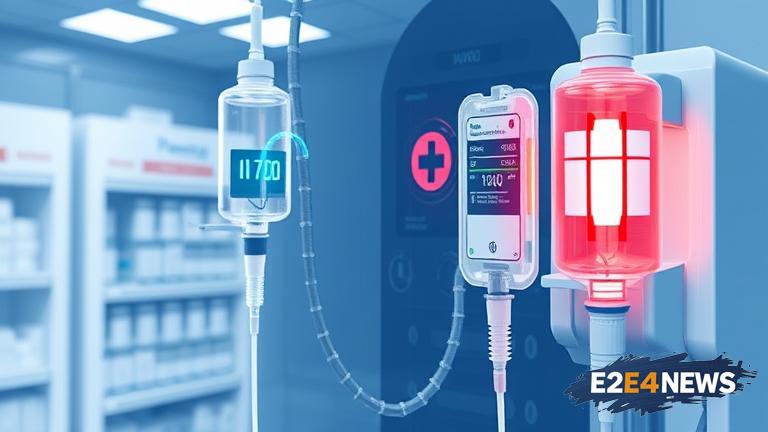The pharmaceutical industry has been undergoing significant transformations in recent years, with a growing emphasis on improving patient safety and streamlining operations. One key area of focus has been the adoption of IV automation, which involves the use of automated systems to prepare and dispense intravenous medications. This technology has the potential to greatly reduce the risk of human error, which is a major concern in pharmacy operations. According to industry experts, IV automation can help minimize the likelihood of medication mistakes, which can have serious consequences for patients. Furthermore, IV automation can also help improve efficiency and productivity in pharmacies, allowing staff to focus on more critical tasks. The need for IV automation has become increasingly pressing in recent years, driven in part by the growing complexity of pharmaceutical treatments. As medications become more sophisticated, the risk of errors increases, making automation a vital tool for ensuring patient safety. In addition, the COVID-19 pandemic has highlighted the importance of efficient and reliable pharmacy operations, with many hospitals and healthcare systems struggling to keep up with demand. In response, industry leaders are calling for greater investment in IV automation, citing its potential to transform pharmacy operations and improve patient outcomes. Several companies are already developing innovative IV automation solutions, including robotic systems and automated compounding devices. These technologies have the potential to greatly enhance patient safety and streamline pharmacy operations, making them an attractive option for healthcare providers. Despite the many benefits of IV automation, there are still several challenges to overcome, including the high upfront costs of implementing these systems. However, industry experts argue that the long-term benefits of IV automation far outweigh the initial investment, making it a vital priority for the pharmaceutical industry. As the industry continues to evolve, it is likely that IV automation will play an increasingly important role in shaping the future of pharmacy operations. With its potential to improve patient safety, streamline operations, and enhance efficiency, IV automation is an exciting development that is poised to revolutionize the pharmaceutical industry. The adoption of IV automation is also expected to have a significant impact on the workforce, with many pharmacists and technicians needing to develop new skills to work effectively with these systems. Overall, the push for IV automation is a critical step forward for the pharmaceutical industry, one that has the potential to greatly improve patient outcomes and transform the way that pharmacies operate.
